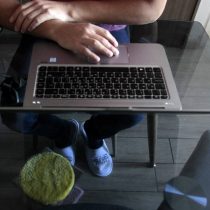
We are at a particularly complex time in the educational field. The COVID-19 pandemic has brutally shown that the conditions in our country are very diverse and uneven, which is an undoubted threat as it presumably will generate a significant increase in learning gaps. The conditions that a “telematic teaching” imposes, open up a large space that requires adaptation and above all capabilities to create and experiment. It is a complex and challenging stage, opening.
The possibility of continuing the educational process and recovering essential learning depends on the efficient articulation of a number of socio-educational factors. One especially significant, but less visible, has been the design of the new planning that needs to be implemented to address these uncertain educational contexts.
For the first time for many decades, a space of autonomy opens up for schools that was not written on any roadmap; teachers are challenged to make decisions to define unreleased curriculum planning based on a prioritized proposal of learning objectives from the Ministry of Education. The new curriculum design that commits each teacher is a highly challenging task, since they do not have prescribed materials for curriculum prioritization, as has historically been the role of curricula, thus breaking a pedagogical tradition that has been used in the teaching planning process.
Along this path, teachers accustomed to planning using curriculums as support must mobilize a set of skills to project their own units or modules with experiences that recover the essentials of the value of learning, on which they must articulate: online resources, texts, guides, time estimation and assessments demanded by remote education.
It is an acute exercise that involves rething, interpreting and reflecting on how to organize, in adverse and diverse contexts, a pedagogical work path with those learning objectives considered essential for your school.
The planning logic shifts to a more contextualized education, which requires starting from students, their contexts and their possibilities. In addition, teachers themselves have found that it is necessary to study in advance what will be the feasible learning experiences to realize in the face of new educational scenarios. A very different task than they had been doing automatically for years.
Making decisions about what is the priority of teaching in times of crisis is a rigorous, sensitive and creative task that will certainly have a very positive impact on training, teaching practice and more consistent public policy design for these new commitments.
In short, the concrete possibility of self-management of the curriculum by integrating local visions and modifying the linear sequence of current curricula, opens up a real opportunity for schools to promote innovation processes daring to take the step to develop their own curriculum programs aligned by the way with the official bases.
This real educational earthquake forces a reconstruction of teaching theory, methodologies and practices, in which the creativity and resilience of teachers are being tested at all levels: they are experiencing a silent curriculum and didactic revolution that will have a huge impact on present and future learning processes.
However, these transformations that are being installed in schools have not become visible, the debates were caught up in inconductive discussions about the opening of establishments or in occurrences such as the “import” of teachers to have a “quality education”. What is really needed in these peak times is to support and support the gigantic task of teachers, as well as having a real national system of support for universal connectivity. The task that Chile’s teachers have always fulfilled, despite all the shortcomings and difficulties, to which now adds an unusual contempt, which must be finished for the sake of the country’s education and new challenges.
"El reclamo puede ser genuino, pero construido sobre una mentira", apuntó el presidente Javier Milei…
El gobernador de la provincia de Buenos Aires, Axel Kicillof, encabezó un acto en Ensenada…
El diputado nacional de La Libertad Avanza, José Luis Espert, expresó su confianza en la…
Tras la masiva reaparición de Cristina Fernández de Kirchner, el presidente Javier Milei apuntó contra…
El principal propósito de la nueva comisión es evaluar los recursos humanos en el Senado,…
En una medida que busca redefinir las condiciones de los seguros de automóviles en Argentina,…
Esta web usa cookies.